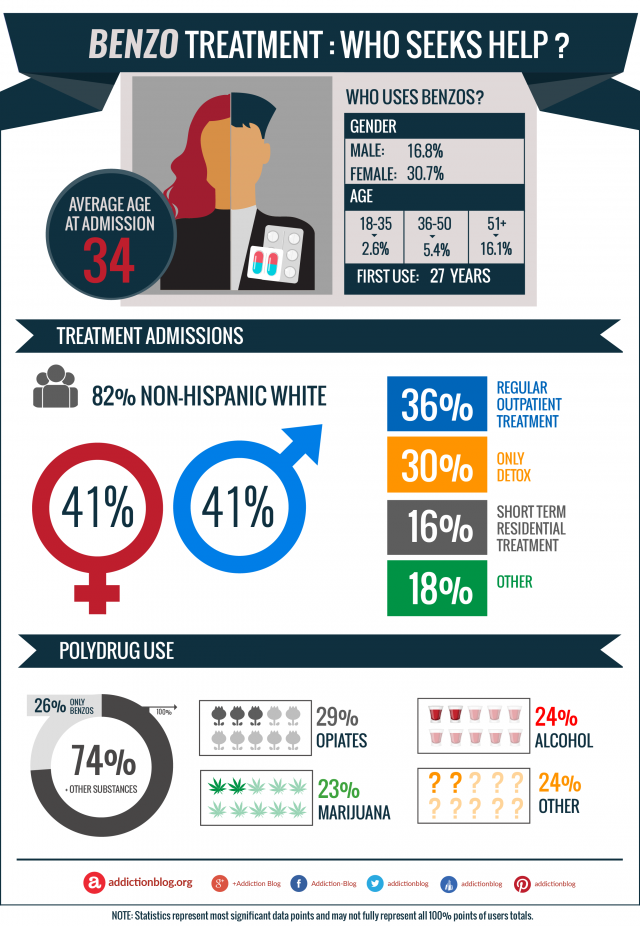Who needs benzo treatment?
Anyone who’s been using benzodiazepines regularly for longer than 2 consecutive weeks. This is enough time for your body to become physically dependent on the medication and experience adverse benzodiazepine withdrawal symptoms once you lower or discontinue normal doses.
How can I quit benzodiazepines?
We recommend that you speak with your doctor and ask for a tapering schedule that is as comfortable as possible. You should also check out the Ashton manual to learn what you can expect and how you can help yourself throughout the process. Common withdrawal symptoms can be treated, or at least managed by other prescription medications, over the counter medicines, or herbal remedies.

However, if you’ve been on your benzo medication for months or years, you will require a more intensive care. A gradual, supervised benzodiazepine withdrawal combined with psychotherapy focused on coping with dependency symptoms and underlying psychiatric symptoms can be of great help.
Benzodiazepine addiction treatment
After an initial assessment and evaluation of your health state and your degree of addiction, you will need to detox from benzos under medical supervision. Then, the meat of the drug rehab treatment program follows:
Psychological treatments – They mainly include behavior therapy and group therapy, but may also include individual one-on-one psychotherapy and/or family behavioral therapy, cognitive behavioral therapy (CBT), contingency management, motivational enhancement therapy, etc.
Education sessions – Are frequently used to teach recovering benzodiazepine addicts about how addiction works, and how it can be treated.
Supportive services – Good benzodiazepine rehab treatment programs offer a number of different supportive services to their clients. Some of them include 12 step program participation, body work, acupuncture and massage, meditation or spiritual practices, nutrition and diet programs, physical exercise programs, support group attendance, etc.
Aftercare – Are usually necessary to help recovering addicts continue to stay away from benzodiazepines. Most recovering addicts will continue with outpatient aftercare program by attending rehab treatment sessions each week.
Benzo addiction treatment questions
If you still have any questions or concerns about benzodiazepine rehab treatment or addiction, don’t hesitate to post them in the comments section below. We look forward to answering all of our readers’ questions and helping them along their journey toward recovery.








Related Posts